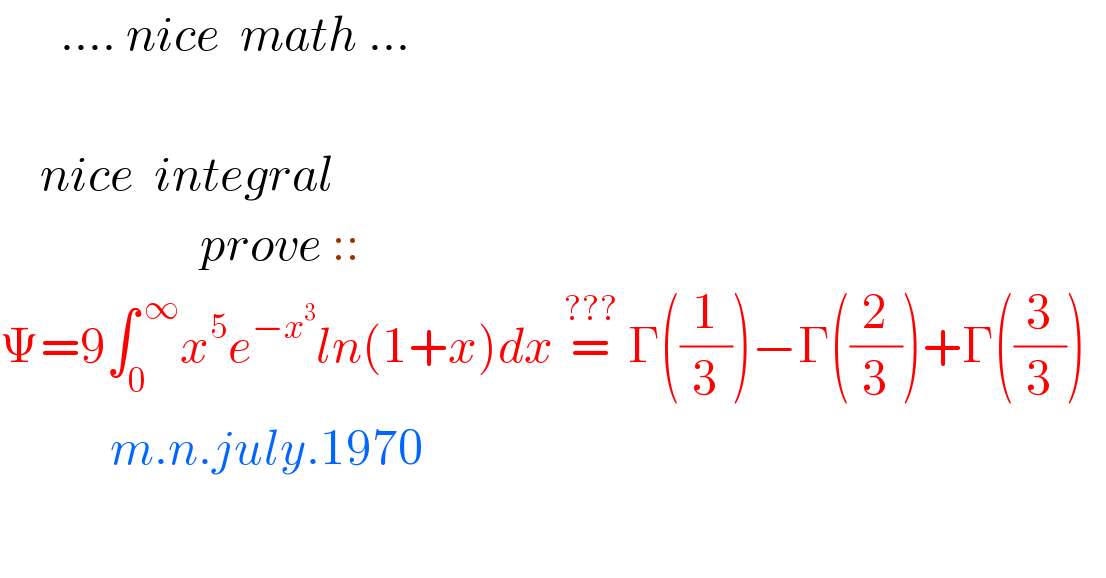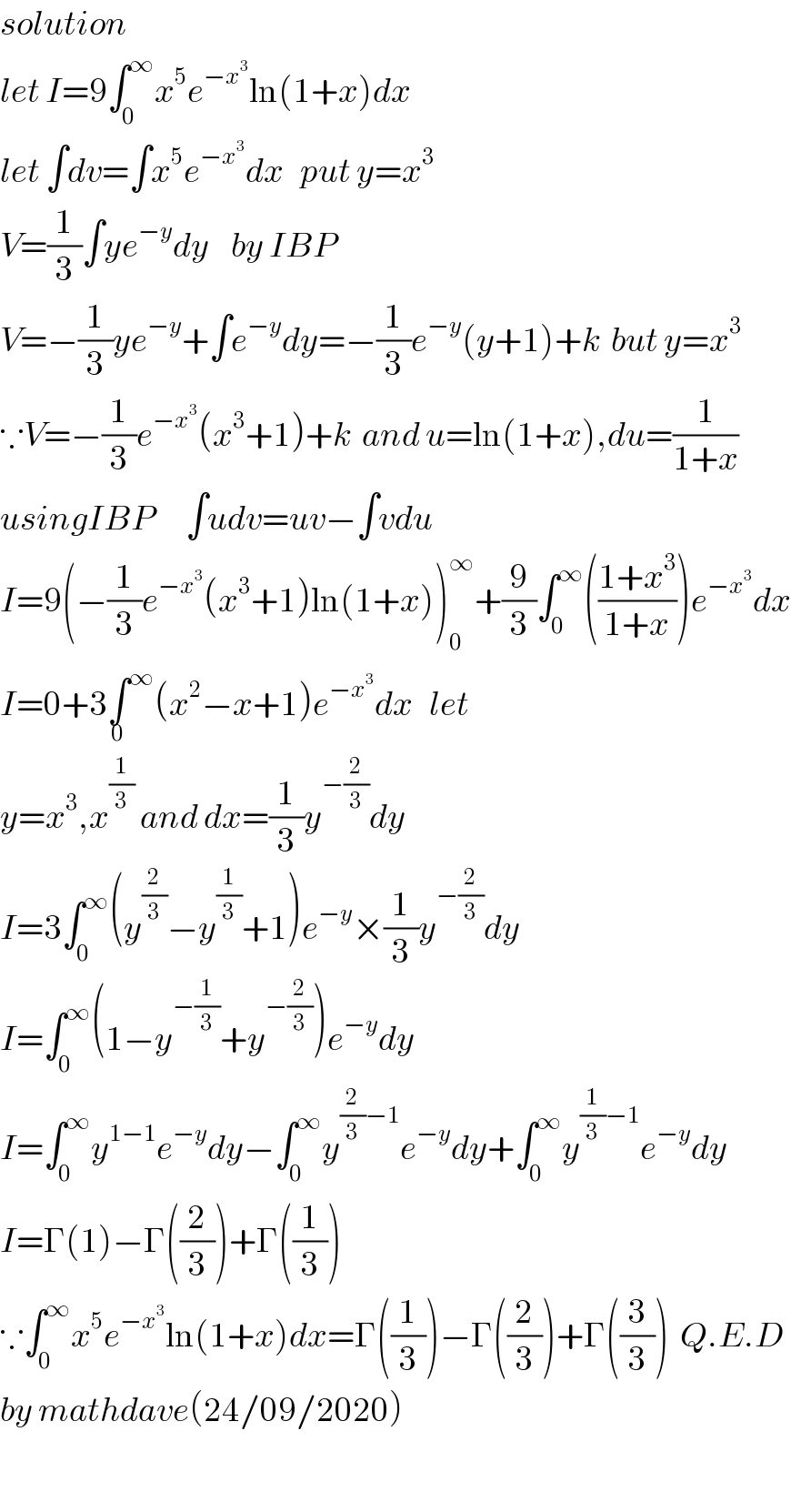
Question and Answers Forum
Question Number 115222 by mnjuly1970 last updated on 24/Sep/20

Answered by mathdave last updated on 24/Sep/20

Commented by mnjuly1970 last updated on 24/Sep/20

Commented by Tawa11 last updated on 06/Sep/21

| ||
Question and Answers Forum | ||
Question Number 115222 by mnjuly1970 last updated on 24/Sep/20 | ||
 | ||
Answered by mathdave last updated on 24/Sep/20 | ||
 | ||
| ||
Commented by mnjuly1970 last updated on 24/Sep/20 | ||
 | ||
Commented by Tawa11 last updated on 06/Sep/21 | ||
 | ||